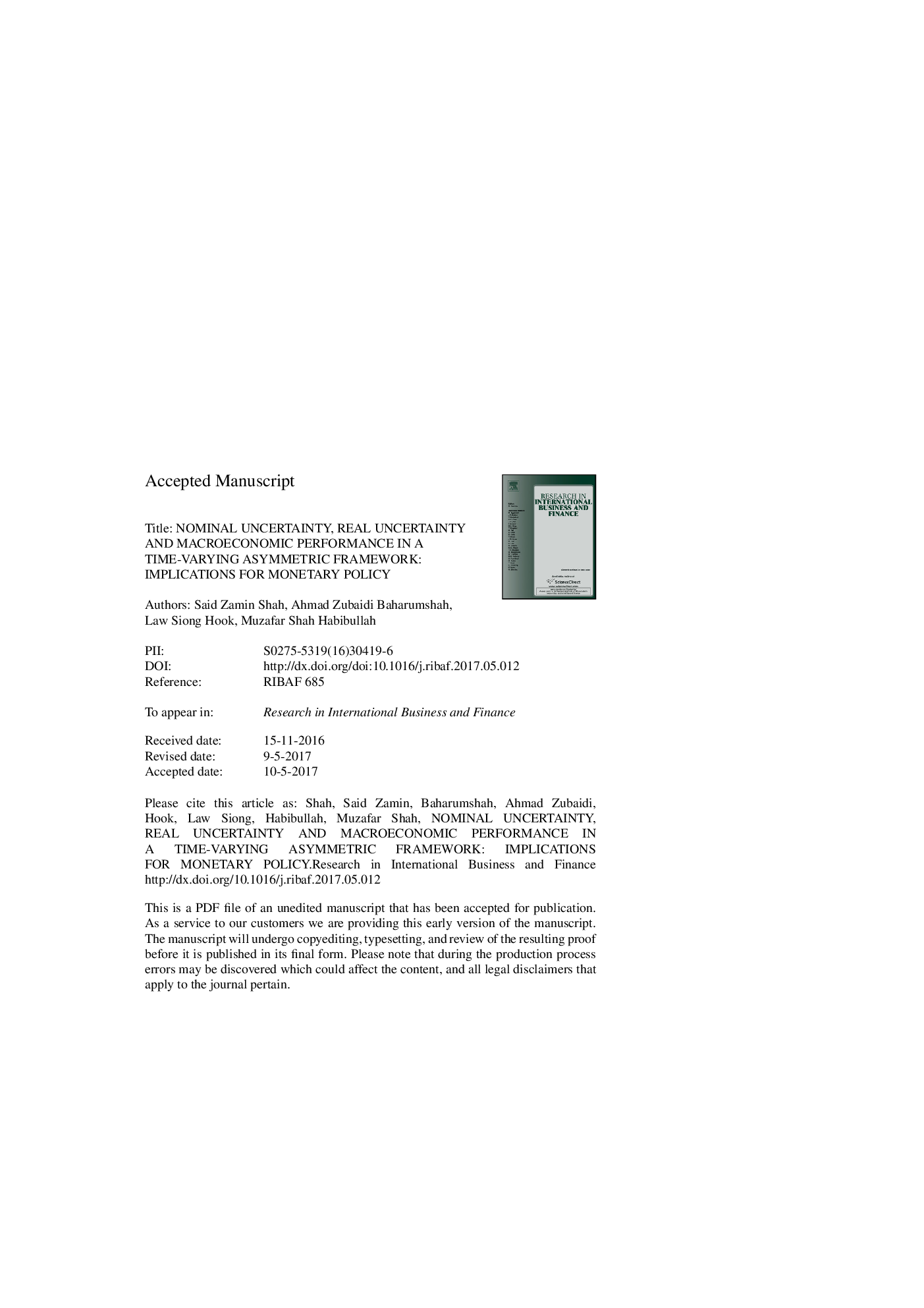| Article ID | Journal | Published Year | Pages | File Type |
|---|---|---|---|---|
| 5107253 | Research in International Business and Finance | 2017 | 43 Pages |
Abstract
This study examines the dynamic causal links and volatility spillovers of inflation, output growth and their uncertainties in four South Asian countries, namely, Pakistan, India, Bangladesh and Sri Lanka by utilizing asymmetric GARCH family models. Our empirical evidence supports a number of important conclusions. There is an overwhelming support for Friedman-Ball hypothesis of positive inflation-uncertainty trade-off for all countries excluding India and Sri Lanka. The Cukierman-Meltzer's idea that inflation uncertainty generates inflation, hold for Bangladesh and Sri Lanka only and the Holland's hypothesis of negative influence of inflation uncertainty on level inflation is supported by India only. The positive influence of output uncertainty on inflation (Devereux (1989) hypothesis) is supported by all countries excluding Bangladesh while nominal uncertainty (real uncertainty) has negative (positive) effect on output growth in Pakistan (Bangladesh). Output growth is reducing real uncertainty in all countries excluding Sri Lanka and nominal uncertainty in Pakistan only. There is significant negative relationship between inflation and output growth for Pakistan only while real uncertainty is positively (negatively) related with nominal uncertainty in India (Bangladesh). The estimated results are almost robust with the simultaneous estimation procedure for testing the main hypotheses. In general, there is asymmetric effect and persistence of the GARCH parameters for all countries. The study suggests that the concerned central banks should pay more attention to the effects of macroeconomic uncertainty and should focus their monetary policy strategy on stabilizing both output growth and inflation.
Related Topics
Social Sciences and Humanities
Business, Management and Accounting
Business and International Management
Authors
Said Zamin Shah, Ahmad Zubaidi Baharumshah, Law Siong Hook, Muzafar Shah Habibullah,
